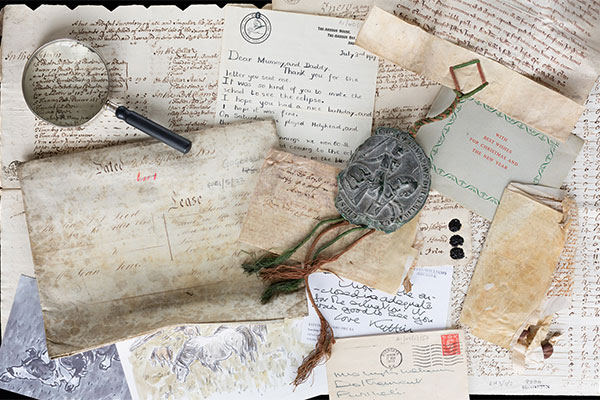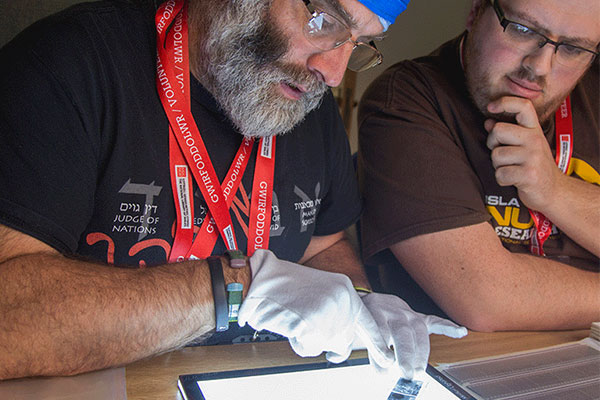The diary
Powys’s diaries are an important part of his literary output. They throw a good deal of light upon his creative processes, and upon his relationship with Phyllis Playter. In them, she is referred to affectionately as ‘the T.T.’, or ‘Tiny Thin’. The diary for 1939 reveals much about their life in Corwen, and about Powys’s struggle to complete Owen Glendower. In particular, it shows how Phyllis Playter influenced the final form of that novel. It also records Powys’s response to the death of his brother Llewelyn on 2 December 1939 (p.336).




